James Wedmore – Business By Design
$997.00 Original price was: $997.00.$43.00Current price is: $43.00.
James Wedmore Business By Design Course [Instant Download]

1️⃣. What is Business By Design?
James Wedmore Business By Design is a complete system that helps you turn your knowledge into a profitable online business.
The course shows you how to create offers people want, build sales systems that work automatically, and grow your business without working more hours.
You’ll learn step-by-step how to design a business that gives you freedom instead of consuming your life.
📚 PROOF OF COURSE



2️⃣. What you’ll learn in Business By Design:
Business By Design teaches you how to transform your expertise into a profitable online business. Here’s what you’ll learn:
- Strategic business planning: Create a vision that aligns with your personal goals and passions
- Productivity systems: Implement effective time management strategies for maximum efficiency
- Irresistible offer creation: Craft compelling offers tailored to your target audience
- Automated sales systems: Build sales funnels that convert without pushy techniques
- Team building: Develop strategies for hiring and managing a team that supports growth
- Business scaling: Implement systems to scale sustainably without increasing your workload
This program helps both new entrepreneurs and experienced business owners looking to optimize their digital business. By the end, you’ll have a complete blueprint for building a Business By Design that works for you, not the other way around.
3️⃣. Business By Design Course Curriculum:
✅ Introduction and Foundations
The course begins with essential mindset training and goal-setting frameworks to prepare students for business success. James shares his personal journey and business philosophy while addressing common obstacles entrepreneurs face. Key lessons include releasing money blocks, understanding failure patterns, and establishing clear business objectives through “Goal Casting” and the “Vacuum” technique for creating space for new achievements.
✅ Phase 1: Strategic Planning and Mindset (Modules 1.1-1.10)
This foundational module establishes the mental frameworks and planning tools needed for business success. Students learn performance indicators, goal setting, and comprehensive business planning through the Ascension Model. The module emphasizes internal power development and practical implementation of strategic tools to transform goals into achievable business plans with measurable outcomes.
✅ Phase 2: The 7-Phase Business Framework (Modules 2.1-2.9)
This section introduces James’ comprehensive 7-phase business development framework. Students learn systematic approaches to research, offer creation, pre-release strategies, launch execution, optimization techniques, business elevation, and automation processes. The module provides a holistic view of the business lifecycle from concept to scalable, automated systems.
✅ Phase 3: The Marketing Pyramid (Modules 3.1-3.7)
Students discover the hierarchical approach to effective marketing through the Marketing Pyramid model. The curriculum explores principles, strategies, tactics, techniques, and results measurement in marketing campaigns. This structured framework helps students understand the relationships between marketing fundamentals and tactical execution for sustainable business growth.
✅ Phase 4: Marketing Principles (Modules 4.1-4.11)
This extensive module covers crucial marketing concepts including direct response, attraction marketing, contextual positioning, leadership, storytelling, and reciprocity principles. Students learn the psychology behind effective marketing through frameworks like “Why/Why Now,” social agreement dynamics, and problem-solution messaging to create compelling offers that resonate with target audiences.
✅ Phase 5: Market Research (Modules 5.1-5.6)
The market research section teaches students methodical approaches to understanding their audience’s needs and desires. Lessons focus on developing listening skills, crafting effective research questions, and synthesizing findings into actionable business insights. Students learn how to identify market gaps and opportunities through structured audience research methods.
✅ Phase 6: Offer Creation (Modules 6.1-6.7)
This critical module guides students through developing irresistible offers that convert. Students learn essential offer ingredients, explore four distinct offer types, and master crafting core promises, structured processes, and optimal pricing strategies. The module concludes with a “Phase 2 Graduation” that marks the transition from planning to execution.
✅ Phase 7: Launch Strategy (Modules 7.1-7.5)
The launch module provides a comprehensive framework for successfully bringing products to market. Students learn essential launch ingredients, list-building strategies, and four distinct sales mechanisms. Case studies showcase successful launch examples, providing real-world applications of the taught methodologies and strategies.
✅ Phase 8: Sales Messaging (Modules 8.1-8.6)
This section focuses on creating persuasive sales content that drives conversions. Students learn essential ingredients of compelling sales messages, the P.S. Path technique, structured outline creation, and big idea formulation. The module emphasizes integrating these elements into cohesive sales narratives that motivate customer action.
✅ Phase 9: Launch Planning (Modules 9.1-9.6)
The launch planning module provides practical implementation strategies for executing successful product launches. Students learn to set realistic launch goals, create detailed launch maps and calendars, and break complex launches into manageable chunks with specific action steps. This section bridges strategy with tactical execution for launch success.
✅ Phase 10: Launch Analysis (Modules 10.1-10.6)
The final core module teaches post-launch analysis and optimization. Students learn comprehensive launch debriefing, distinguishing between performance metrics and results, diagnosing failed launches, and scaling successful ones. The module includes a case study debrief with Britt Seva, demonstrating real-world application of the analysis framework.
4️⃣. Who is James Wedmore?

James Wedmore is an online business coach who helps entrepreneurs build profitable businesses. He went from bartender to multimillion-dollar business owner, showing he understands what works.
James graduated from a top 10 film school and built a seven-figure business teaching video marketing and YouTube. In 2016, he spotted what was missing in online business: mindset combined with practical systems.
This led him to create his podcast “Mind Your Business” and his main program “Business By Design.” He’s been featured on Entrepreneur.com, Rise to the Top, Mixergy, and taught on Creative Live.
James also runs “The Inner Circle,” a high-level mastermind for serious entrepreneurs. With his wife Chelsea, he runs a multiple seven-figure business that gives him freedom to live on his terms.
What makes James different is how he combines strategic systems with mindset work, helping entrepreneurs overcome blocks while building proven business frameworks.
5️⃣. Who should take James Wedmore Course?
Business By Design is made for people who want to build or grow an online business. The course is perfect for:
- Content creators who want to make money from their knowledge through courses or coaching.
- Online coaches who want to move beyond one-on-one work with systems that sell for them.
- Course creators who need better ways to market, launch, and grow their products.
- Service providers looking to package their skills into products that reach more people.
- Digital entrepreneurs who feel stuck with too many moving parts in their business.
This program works for both beginners and experienced business owners. If you want a business that gives you freedom instead of eating up all your time, Business By Design shows you exactly how.
6️⃣. Frequently Asked Questions:
Q1: How profitable is creating and selling online courses?
Q2: Do I need to be an expert to create an online course?
Q3: What tools do I need to sell an online course?
Q4: How long does it take to launch a course-based business?
Q5: Can an online course be a full-time income?
Be the first to review “James Wedmore – Business By Design” Cancel reply
Related products
E-commerce & Technology



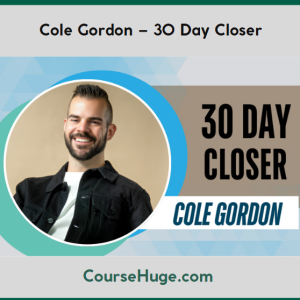
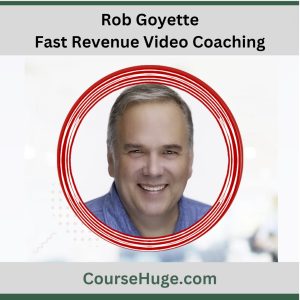
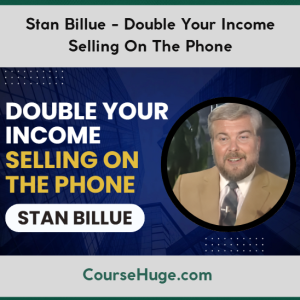
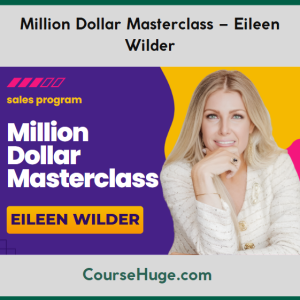
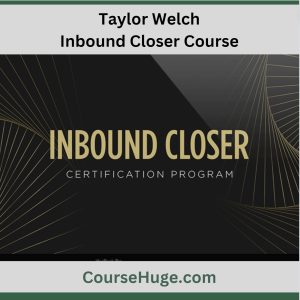
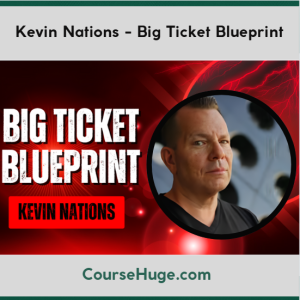
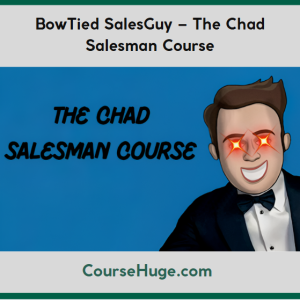

Reviews
There are no reviews yet.